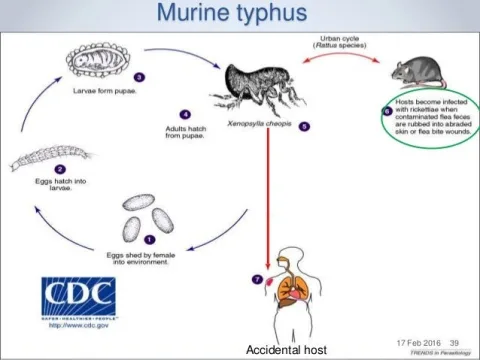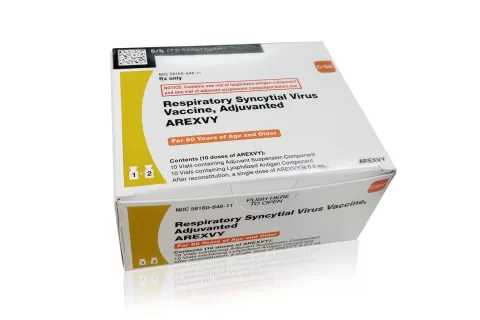Vaccine Safety Data is crucial for ensuring public confidence in immunizations, especially as we prepare for the upcoming respiratory virus season. Recent findings from the Vaccine Integrity Project (VIP) highlight the strong safety and efficacy of vaccines, including COVID-19, respiratory syncytial virus (RSV), and influenza vaccines. The comprehensive review conducted by experts revealed no alarming safety signals related to these immunizations, reaffirming the importance of maintaining robust and evidence-based immunization recommendations. As health authorities like the American Academy of Pediatrics (AAP) advocate for continued vaccination, parents can rest assured that the benefits of these vaccinations far outweigh any potential risks. The ongoing commitment to vaccine integrity not only helps in combatting vaccine misinformation but also reinforces community health against major respiratory threats.
The topic of vaccine safety encompasses the evaluation of immunization effectiveness and the assurance of health regulators regarding their use. Data derived from thorough investigations by organizations such as the Vaccine Integrity Project illustrates the reassuring outcomes associated with vaccines targeting COVID-19, RSV, and influenza. As medical professionals review extensive literature and draw conclusions about immunization guidelines, the consensus remains that vaccines are both effective and safe for varied populations. Reports from reputable sources support the immunization framework and highlight the importance of adhering to established medical recommendations for enhancing public health. Understanding these health interventions is essential for informed decision-making within communities.
Understanding Vaccine Safety Data
Vaccine safety data is essential for public confidence in vaccination programs, particularly with the upcoming respiratory virus season. Recent findings from the Vaccine Integrity Project under the Center for Infectious Disease Research and Policy (CIDRAP) indicate that the current COVID-19 vaccines, alongside influenza and respiratory syncytial virus (RSV) vaccines, show no concerning safety signals. This comprehensive review focused on a vast array of studies — nearly 600 publications were analyzed — which underscores the commitment to ensuring that vaccines are both effective and safe for all demographics, including children, pregnant women, and those with compromised immune systems.
In light of potential risks associated with vaccines, particularly regarding myocarditis after COVID-19 vaccination, the evidence presented supports that these concerns have not materialized into significant safety signals. Countering misinformation, the VIP’s findings reveal that the vaccination outcomes in crucial populations yield similar, if not improved, health results compared to those who remain unvaccinated. Importantly, the review found no association between vaccination and autism as an adverse event, reinforcing the safety profile of COVID-19 vaccines.
The Efficacy of COVID-19 Vaccines in Various Populations
The effectiveness of COVID-19 vaccines has been a pertinent topic of discussion in public health circles. The Vaccine Integrity Project highlighted not only the broad efficacy of these vaccines during the review but also specific insights related to their performance in vulnerable populations such as pregnant women and children. Evidence suggests that the COVID-19 vaccines significantly reduce the risk of severe illness and hospitalization when compared to unvaccinated individuals, thereby emphasizing their importance as part of public health strategies to combat COVID-19 and other respiratory illnesses.
Moreover, it is noteworthy that the VIP’s findings align with recommendations from the American Academy of Pediatrics (AAP), advocating for vaccination in children aged 6 months to 18 years. This recommendation reflects a shared understanding of the need to protect young populations, particularly as they could play a crucial role in virus transmission. The concurrent review of RSV vaccine data underscores the importance of immunization not just against COVID-19, but also against seasonal respiratory viruses to decrease overall morbidity in high-risk groups.
Effective Influenza Vaccination Strategies
Influenza vaccination remains a cornerstone of preventive health, especially during seasonal outbreaks. The latest data from the Vaccine Integrity Project confirms the long-standing recommendation for influenza vaccination, particularly for pregnant women. This demographic has shown a notable reduction in medically attended influenza infections when vaccinated, which is vital for both maternal and fetal health. The data reinforces the role of influenza vaccines in community health, aiming to reduce not only individual risk but also potential hospitalizations and deaths caused by the virus.
In light of evidence supporting influenza vaccination’s effectiveness, health organizations continue to advocate for robust public health campaigns. The ongoing collaboration among medical societies, including the CDC and AAP, aims to enhance public awareness and adherence to immunization schedules. As influenza viruses evolve seasonally, the need for annual vaccination remains critical, underlined by the continuous monitoring of vaccine safety and efficacy to ensure optimal health outcomes.
Implications for RSV Vaccine Effectiveness
As respiratory syncytial virus (RSV) poses a significant health risk, especially for infants and elderly populations, the Vaccine Integrity Project’s review has highlighted important findings on RSV vaccine effectiveness. The analysis indicates that, while current RSV vaccines may present some concerns regarding preterm birth in pregnant women, the overall benefits of vaccination in preventing severe RSV outcomes for children and vulnerable adults cannot be overlooked. Vaccination against RSV is increasingly recognized as a preventive measure vital for safeguarding high-risk populations.
Health officials stress the importance of monitoring these outcomes as new vaccines or modifications are introduced. Data will continue to play a crucial role in informing immunization recommendations. As such, ongoing studies are imperative to assess not only the efficacy of existing RSV vaccines but also to identify any adverse effects, crafting an evidence-based approach to vaccination strategy in the face of evolving viral threats.
Vaccine Integrity Project’s Role in Public Health
The Vaccine Integrity Project (VIP) represents an important initiative in the quest for transparent and reliable vaccine information. Established by CIDRAP, the VIP serves the dual role of reviewing comprehensive, high-quality data concerning vaccine safety and effectiveness while also combating pervasive misinformation in public discourse. This endeavor aims not merely to provide reassurance but also to uphold the integrity of vaccination programs as society gears up to face respiratory viruses prevalent in each season.
By fostering collaboration among public health professionals and stakeholders, the VIP prioritizes evidence-based recommendations that are not only consistent with scientific literature but also correspond with public health needs. With tools in development, such as interactive data visualizations, the project aims to enhance public access to relevant vaccine-related information, ultimately empowering individuals to make informed vaccination choices for themselves and their families.
Addressing Vaccine Myths and Misinformation
One of the major challenges surrounding vaccinations, especially in the context of recent pandemics, is the prevalence of misinformation. The Vaccine Integrity Project has identified this issue as a critical area needing attention, as misinformation can deter individuals from seeking vaccinations. By disseminating reliable and scientifically validated information, the VIP aims to equip the public with facts that counter myths about vaccines, including the unfounded claims linking vaccines to autism.
Engaging health professionals to communicate effectively with communities can also help bridge the gap of understanding and increase vaccine uptake. Educational campaigns emphasizing the rigorous safety assessments conducted by agencies such as the FDA can reaffirm confidence in vaccines. Maintaining a consistent narrative around vaccine safety and efficacy is essential for fostering public trust, especially as misinformation evolves.
Future Directions for Vaccine Research
The continuous pursuit of research in vaccine development and efficacy is crucial for adapting to emerging health challenges. The Vaccine Integrity Project’s ongoing efforts signal a commitment to understanding the landscape of vaccines in real-time, evaluating data as it is generated to inform public health guidelines flexibly. The review of current evidence reinforces the need for further studies focusing on the long-term effects of vaccinations on various populations, particularly in light of newer variants and potential shifts in virus behavior.
As the landscape of infectious diseases changes, future vaccine initiatives must prioritize ongoing research. In an era when public interest and scrutiny on vaccination practices are high, it is imperative that health authorities remain engaged in transparent dialogue about vaccine research, its importance, and its relevance as part of comprehensive healthcare planning. Only through adaptive strategies that include new evidence can we hope to navigate future public health crises effectively.
The Importance of Vaccination Recommendations
Immunization recommendations serve as a vital aspect of public health policy, guiding the population in vaccination decisions. The recent independent evidence-based immunization schedule put forth by the AAP emphasizes the need for comprehensive vaccination strategies that align with empirical data. It’s a collective responsibility among healthcare providers to advocate for following these recommendations to safeguard against potential environmental health threats posed by respiratory viruses.
By adhering to established vaccination schedules, healthcare systems can amplify their efforts to protect vulnerable populations, including children and the elderly, who are often the most at risk during respiratory virus seasons. The consistency in these recommendations can only foster trust in vaccination initiatives, ultimately leading to broader community acceptance and compliance.
Collaboration Among Health Organizations
The importance of collaboration among health organizations cannot be understated, particularly when it comes to implementing vaccination programs that aim to save lives. The VIP’s engagement with various health bodies, including the CDC and the AAP, showcases how unified efforts can strengthen public health messaging and improve vaccination uptake. Each organization brings unique expertise and perspectives that, when combined, create a comprehensive strategy for tackling infectious diseases.
Moreover, leveraging diverse research priorities allows for a multifaceted approach that not only addresses immediate public health needs but also prepares for future challenges. This collaborative environment fosters innovation in vaccine research and adaptability in responding to new health threats, enhancing the overall effectiveness of public health initiatives related to vaccination.
Frequently Asked Questions
What does the Vaccine Integrity Project say about COVID-19 vaccines regarding safety data?
The Vaccine Integrity Project (VIP) has presented comprehensive safety data indicating that current COVID-19 vaccines do not show any new safety signals or decreased effectiveness. This aligns with findings from over 17,000 reviewed abstracts, ensuring a solid foundation of evidence for vaccine recommendations.
How effective are influenza vaccinations according to recent Vaccine Safety Data?
Recent Vaccine Safety Data reviewed by the VIP supports the effectiveness of influenza vaccinations, especially during pregnancy, as they significantly reduce medically attended infections. This finding reinforces the importance of influenza vaccines in protecting both mothers and infants.
What did the Vaccine Integrity Project find regarding RSV vaccine safety for pregnant women?
The Vaccine Integrity Project identified a potential risk of preterm birth linked to the RSV vaccine in pregnant women. However, it emphasized that overall safety data does not indicate significant new risks associated with COVID-19 or RSV vaccines.
How does the Vaccine Integrity Project assist in immunization recommendations?
The Vaccine Integrity Project provides evidence-based vaccine safety data to organizations like the American Academy of Pediatrics, helping to formulate and communicate reliable immunization recommendations, particularly regarding COVID-19, RSV, and influenza vaccines.
Are there any notable safety concerns with COVID-19 vaccinations based on the latest Vaccine Safety Data?
According to the latest Vaccine Safety Data presented by the VIP, there are no notable safety concerns linked to COVID-19 vaccinations. The review did not find significant adverse events, including those related to myocarditis, reaffirming the safety of these vaccines.
What role does the Vaccine Integrity Project play in combating vaccine misinformation?
The Vaccine Integrity Project is actively working to combat vaccine misinformation by providing robust evidence-based immunization recommendations. This initiative aims to educate both medical professionals and the public using the latest safety data.
How does the effectiveness of the RSV vaccine compare to COVID-19 and influenza vaccines?
The Vaccine Integrity Project’s review shows that the effectiveness of the RSV vaccine, alongside COVID-19 and influenza vaccines, demonstrates similar or improved healthcare outcomes compared to no vaccination, emphasizing the importance of these immunizations in public health.
What are the implications of the Vaccine Integrity Project’s findings on immunization practices for children?
The findings from the Vaccine Integrity Project have led to independent guidelines from the American Academy of Pediatrics, recommending COVID-19 vaccinations for children aged 6 to 23 months who are particularly at risk, underscoring the value of these vaccines in protecting younger populations.
What are the data sources used by the Vaccine Integrity Project for their reviews?
The Vaccine Integrity Project sourced its data from extensive literature, reviewing nearly 600 papers and conducting analyses of 24 experts. Their focus was on assessing vaccine safety and effectiveness throughout the past couple of respiratory virus seasons.
What can the public expect from the Vaccine Integrity Project moving forward?
The public can expect ongoing updates and transparent communication from the Vaccine Integrity Project regarding evidence-based immunization recommendations, which will include detailed data visualizations to enhance public understanding of vaccine safety and effectiveness.
| Key Point | Description |
|---|---|
| Vaccine Integrity Project (VIP) Launch | CIDRAP launched VIP to gather new evidence on the safety and effectiveness of vaccines for respiratory viruses. |
| No Notable Safety Issues Identified | Initial findings indicate vaccines do not show new safety signals or decreased effectiveness, including for COVID-19, RSV, and influenza. |
| Comprehensive Data Review | Review included close to 17,000 abstracts and 547 papers for detailed extraction, ensuring comprehensive analysis. |
| Guidelines for Children and Pregnant Women | AAP recommends vaccination against COVID-19 for children 6-23 months and those 2-18 in risk categories, aligning with VIP findings. |
| Continuing Efforts Against Misinformation | The VIP aims to combat vaccine misinformation and provide ongoing evidence-based recommendations. |
Summary
Vaccine Safety Data presented today by the Vaccine Integrity Project underscores the safety and effectiveness of vaccines for respiratory viruses as we enter the peak season. The findings reveal no new safety signals or significant drops in vaccine efficacy, providing reassurance to the public and healthcare providers. With over 500 studies reviewed, including recommendations for children and pregnant women, the data strengthens the case for vaccination against illnesses like COVID-19, influenza, and RSV. This comprehensive evidence, coupled with expert guidance, emphasizes the importance of immunization in safeguarding public health.
The content provided on this blog (e.g., symptom descriptions, health tips, or general advice) is for informational purposes only and is not a substitute for professional medical advice, diagnosis, or treatment. Always seek the guidance of your physician or other qualified healthcare provider with any questions you may have regarding a medical condition. Never disregard professional medical advice or delay seeking it because of something you have read on this website. If you believe you may have a medical emergency, call your doctor or emergency services immediately. Reliance on any information provided by this blog is solely at your own risk.








